
Johannes has decades of experience in developing medical applications of magnetic nanotechnology, including through university-industry relations and tech transfer. At Generation Biotech, he invented and commercialized RSE/HSE technology for faster, more accurate next-generation sequencing and transplantation tissue typing through collaborative work with Princeton, Rider and Rutgers Universities, GenoVision/Qiagen, the Charité Hospital in Berlin and the Children’s Hospital in Philadelphia. At Orchid BioSciences, his R&D group was instrumental in developing the automated ‘SNPstream’ platform that became Orchid’s first product. He joined Orchid from SEQ Ltd., a pioneer company attempting to build a single molecule DNA sequencer, utilizing some of his work on single molecule biophysics at the Karolinska Institute in Stockholm. Similar technology is now mature and widely available commercially. Johannes received his Ph.D. in Physical Chemistry from the University of Göttingen / Max-Planck-Institute for Biophysical Chemistry, where he worked on in-vitro molecular evolution in the group of Nobel Laureate Manfred Eigen and John McCaskill. His Diplom (equiv. M.S.) in Physics is from the Technical University of Darmstadt / University of Florida, Gainesville.
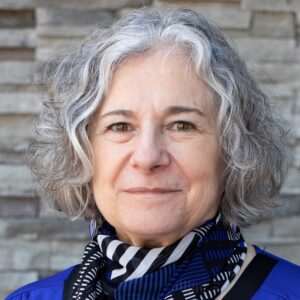
Elaine is co-founder of NeuroPair and the President and Senior Partner of Contracts, Compliance, and Conflict of Interest Authority LLC. Clients include universities, health systems, small businesses, and non-profit organizations. She is affiliated with two law firms and is the Contract Accords Manager for the University-Industry Demonstration Partnership (UIDP), where she worked closely with Johannes Dapprich (then Generation Biotech). Elaine was the Senior Associate Director of the sponsored projects office at the University of Michigan. She was also the Director of Michigan Medical School tech transfer office. She was the principal investigator on a large data sharing contract under the National Cancer Institute’s caBIG® project on biorepositories & biospecimen research. Elaine taught industry contracts in Johns Hopkins University’s online research administration program. She has served on many committees including the Board of Directors of Council on Governmental Relations (COGR). Elaine is licensed to practice law in the State of Michigan. Her degrees are a B.A. from the University at Buffalo (SUNY); M.H.S.A. from the University of Michigan; J.D. from Michigan State University College of Law.

Jay is co-founder of NeuroPair and a scientist and entrepreneur who, over the last decade, co-founded Invenio Imaging, Vedere and Vedere II, Aratome LLC, and Photoswitch Biosciences, each successful companies translating new technologies to actual use for medical patients, and most recently co-founder of Neuropair. Vedere was sold to Novartis for $280M. He is a Director of each company and has leadership positions at Invenio, Aratome, and Photoswitch, which successfully obtained the FDA’s ‘Breakthrough Device’ designation for its product. Previously, Jay was an executive at Cytokinetics (CYTK) and at Amersham, which acquired his first start-up (Praelux) where he worked with Johannes Dapprich. He started his research career at Bell Labs, where he co-invented a super-resolution microscope with Eric Betzig, a technology that laid the foundation for Eric’s Nobel Prize in 2014. He is married with three children and enjoys the outdoors and music, when not working. His PhD is from Cornell University is in Chemistry.
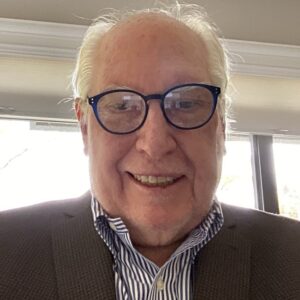
Bill is co-founder of NeuroPair and Global Managing Director for the International Center for Executive Options (ICEO). He built and leads this practice at Lee Hecht Harrison which provides individualized consulting services to the most senior level executives and organizations undergoing transformative change. Under his leadership, ICEO has enjoyed exceptional growth and client satisfaction and provides innovative solutions and local, national, and global resources and connections unparalleled in the industry. Bill’s business savvy and skills in advising and partnering with senior clients stem from his extensive background in leadership roles across multiple functional and industry verticals, as well as his board and business ownership experience. Prior to joining LHH, he was a CEO, COO, president, general manager, and group executive for a diverse group of small ($10 million) to large ($1 billion plus) businesses, as well as responsible for corporate strategic planning and business development. His career spans senior management roles in marketing, sales, and law with Fortune 50 and 500 companies. He has been a board member and advisor in the biotech industry and owned a nationally distributed food products business. Bill’s degrees are B.A. Florida State University, M.S. Columbia University Graduate School of Business, J.D. Stetson University School of Law.

Jason is a member of the research and teaching faculty at Princeton University in the department of physics. He began his career as a cosmologist building high-altitude telescopes. He started his biophysics lab at Princeton in 2010 and is involved in multiple projects bridging physics and the life sciences. His most recently NIH-funded work leverages techniques from microfluidics, optics, and deep-learning to explore methods to track and understand the disassembly by molecular chaperones of pathogenic protein aggregates. In addition to his earlier work with Johannes Dapprich and research funded by NeuroPair, Jason has consulted as the technology lead for Biopticon Corporation (Princeton, NJ) since 2010, where he spearheaded the development of the first hand-held, structured light scanner for preclinical cancer research. He is married with two children and is actively involved in several educational outreach efforts at Princeton. Jason’s degrees are a B.A. from Hamline University and a Ph.D. from M.I.T..

Eve is a neurosurgeon at The Ottawa Hospital, with a research focus on spinal cord repair strategies, axonal regeneration, MRI imaging of spinal cord tracts in humans and animals, and clinical outcomes after spine surgery. Her guiding principle is successful translation of research to the patient, and she has pioneered several new approaches to better accomplish this goal: She is probably the only person in the world who works with ‘live’ human spinal cord explants. These are invaluable tools to identify, early on, unexpected problems, as well as opportunities, when transitioning from animal experiments to human trials. Together with Dr. Ann Parr, Eve developed a protocol to transform human stem cells into neural spinal progenitor cells to help repair the spinal cord after injury. Dr. Tsai and NeuroPair obtained joint grant funding to use these two approaches from the Morton Cure Paralysis Fund. Utilizing human tissues is of critical importance in the study of complex neurobiological studies because it can help bring new technologies to the patient in a shorter time and with a much reduced risk of failure to translate when compared to current approaches that focus solely on animal experiments. She and her colleagues have been instrumental in testing and highlighting the importance of these critical tissues for basic and clinical research. Her medical degree is from the University of Toronto. During her residency, she completed a PhD in spinal cord repair and then obtained subspecialty training in spine surgery and completed a Spine Fellowship at The Cleveland Clinic.
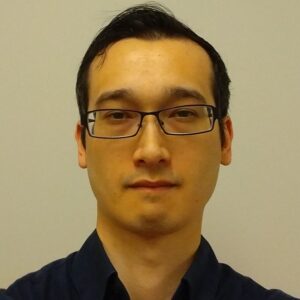
Eric has worked for more than a decade in the research and development of pharmaceutical technologies and biomaterials. He currently directs translational research projects at the Ottawa Hospital Research Institute in the laboratory of Dr. Eve Tsai, conducting collaborative research with academics and industrial clients, including NeuroPair. He has previously worked as a research associate at the National Research Council of Canada, conducting research on antibody-targeted therapeutics. Eric received his Ph.D. in Biochemistry from the University of Toronto, where he worked on the development of peptide-targeted small-molecule conjugates for chemotherapeutic, antibiotic, and cell biology chemical probing applications. He received his B.Sc. from Queen’s University in Kingston.
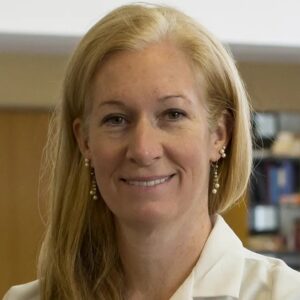
Ann is a Board-Certified Neurosurgeon at the University of Minnesota, interested in finding new therapies for spinal cord injury. She is also a faculty member in the Graduate Program in Neuroscience and the Stem Cell Institute. Her research centers on transplanting neural stem cells grown from a patient’s own skin into the injured spinal cord to enable regeneration and functional reconnection. Her approach is aided by other technologies, such as scaffolds, growth factors, and electrical stimulation. She has an active translational research laboratory and examines mechanisms of functional recovery using techniques such as histology and immunohistochemistry, cell culture, optogenetics, and animal modeling. Half of the time she sees patients and operates on disorders of the brain and spine, the other half of her time she works in her spinal cord injury laboratory at the Stem Cell Institute. Ann became interested in spinal cord injury through interaction with her patients and the realization that there really are no good therapies available for spinal cord injured patients. She received her undergraduate and medical degrees from Queen’s University, Kingston, Ontario, Canada, then completed her PhD studies in neural stem cell transplantation for spinal cord injury during neurosurgical residency at the University of Toronto. She received further training in complex spine at the University of Miami/Jackson Memorial Hospital, Miami, Florida.
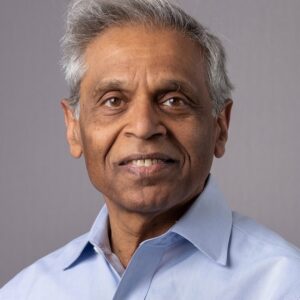
Sanjeeva is a Materials Scientist at Rutgers University with a focus on polymers and biomaterials and extensive experience in translational medical research, such as artificial skin (at M.I.T.) and grafts and conduits to reconnect and heal peripheral nerve injuries. Specific to the project work funded by NeuroPair, he studied reconstituted myelin to understand the structure of the membrane sheath surrounding nerve fibers and has applied his knowledge in the chemistry of surface functionalization to influence and drive cellular behavior with bioactive factors in various types of biomaterials. He is also working on oriented collagen scaffolds for cell guidance in gels and foams. He authored nearly 240 publications and book chapters, ~ 180 in refereed journals, is a Fellow of the American Physical Society and International Center for Diffraction Data, and a member of the American Chemical Society and Society for Biomaterials. Sanjeeva’s degrees are a B.E. in Electrical Engineering, University of Mysore; M.Tech., Applied Physics, Indian Institute of Science; Ph.D. Materials Science, University of Connecticut.